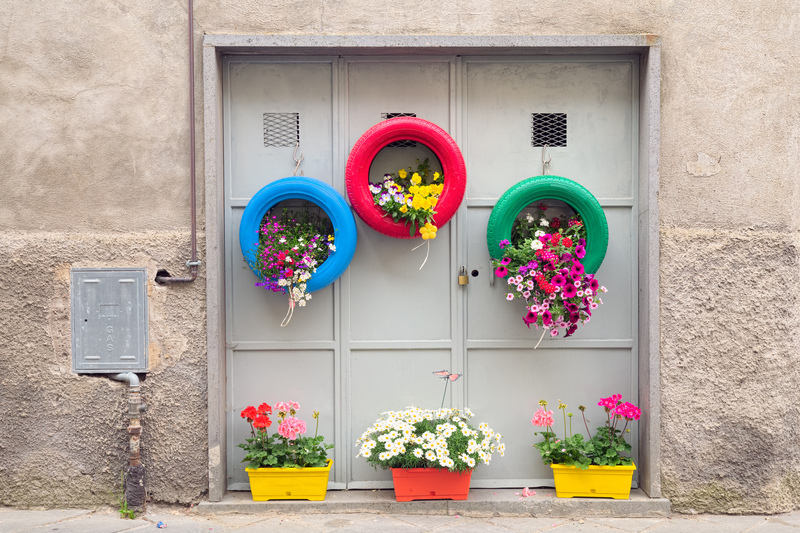Mindful Habits to Minimize Plastic Usage: A Practical Guide to Sustainable Living
Plastic pollution is a pressing environmental issue impacting our oceans, wildlife, and overall planet health. While it may seem overwhelming, developing mindful habits to minimize plastic usage can empower each of us to contribute positively. This comprehensive article explores practical steps, insightful tips, and sustainable alternatives to help you begin your journey toward a plastic-free lifestyle.
Understanding the Plastic Crisis
To adopt mindful habits that reduce plastic consumption, it's important to first understand the magnitude of the plastic problem. Each year, millions of tons of plastic waste end up in landfills and oceans, harming marine life, entering the food chain, and releasing toxins. The convenience of single-use plastics has come at a significant environmental cost.
- 8 million tons of plastic are dumped into the ocean every year.
- Plastics take hundreds of years to decompose, leaching harmful chemicals during this time.
- Microplastics have been found in drinking water, fish, and even the air we breathe.
Greater awareness is leading individuals to rethink their consumption and seek out mindful approaches to reduce plastic dependency.

Why Mindfulness Matters in Plastic Reduction
Mindfulness is the foundation for lasting behavior change. Incorporating mindful habits to reduce plastic consumption means becoming more aware of your daily choices, understanding where plastic sneaks into your life, and consciously opting for sustainable alternatives.
- Awareness: Noticing how and where you use plastic.
- Intentionality: Making deliberate choices to reduce single-use plastics.
- Reflection: Evaluating the impact of your choices on the planet.
Simple Mindful Habits to Minimize Plastic Usage
1. Audit Your Plastic Use
The first step is recognizing your own habits. Spend a week tracking every time you use plastic, especially single-use plastics like bags, water bottles, food wrappers, and toiletries. This simple audit will highlight areas for improvement and guide your next steps.
- Keep a note on your phone or notepad.
- Pay attention to hidden plastics - think tea bags, receipts, or even clothing fibers.
- Reflect on what items are necessities versus what could be swapped for reusables.
2. Choose Reusable Alternatives
One of the most effective ways to reduce plastic waste is switching to reusable items wherever possible. Prioritize investing in high-quality, durable goods designed to replace disposables.
- Tote bags for shopping instead of plastic bags.
- Stainless steel or glass water bottles for hydration on the go.
- Bamboo or metal straws in place of single-use plastic straws.
- Reusable food containers and wraps instead of cling film or sandwich bags.
- Personal coffee cups or travel mugs at cafes.
3. Mindful Shopping: Refuse, Reduce, and Rethink
While shopping, practice mindfulness by examining the packaging and considering alternatives.
- Refuse: Politely decline plastic bags, straws, and cutlery when offered.
- Reduce: Buy larger quantities to minimize packaging or choose loose produce.
- Rethink: Evaluate if you really need the item, or if a less-packaged alternative exists.
Pro tip: Shop at bulk or zero-waste stores that encourage bringing your own containers.
4. Switch to Plastic-Free Personal Care Products
Many toiletries and cosmetics come in plastic packaging or include plastic microbeads. Try these swaps:
- Shampoo bars and soap bars instead of bottled body washes.
- Bamboo toothbrushes over plastic ones.
- Reusable razors instead of disposable ones.
- Natural loofahs rather than synthetic sponges.
- DIY beauty recipes using natural, unpackaged ingredients.
5. Mindful Food Choices to Lower Plastic Use
The way you buy and store food significantly affects your plastic footprint. Adopt these practices:
- Buy from farmers' markets or stores that use less packaging.
- Opt for fresh over pre-packaged produce.
- Bring your own produce bags and storage containers when shopping.
- Prepare meals at home more often, reducing reliance on takeout containers.
- Choose glass jars or paper bags for storage instead of plastic.
6. Practice Mindful Recycling and Disposal
Responsible disposal of plastics is as crucial as reducing usage. Make sure you:
- Clean and sort recyclables according to local guidelines.
- Donate or upcycle items instead of throwing them away.
- Avoid "wishcycling"--putting non-recyclables in the recycling bin.
Tip: Compost biodegradable items and separate out plastics to keep waste streams clean.
7. Influence and Educate Others
Habits are contagious. Inspire friends, family, and coworkers by sharing your journey and advocating for sustainable habits to reduce plastic dependency.
- Organize plastic-free challenges in your community or workplace.
- Recommend favorite plastic-free products or shops.
- Share articles, documentaries, or tips on social platforms.
The ripple effect can multiply your positive impact exponentially.
Adopting a Low-Waste Mindset: Beyond Just Plastic
Minimizing plastic usage goes hand in hand with living a broader low-waste or zero-waste lifestyle. This holistic approach also reduces other forms of pollution, saves money, and fosters a stronger connection to the world around you.
- Plan your purchases to avoid impulse buys and reduce waste.
- Embrace minimalism--own fewer, higher-quality items.
- Support businesses and brands that prioritize sustainable packaging and ethical production.
Many of these mindful habits to reduce plastic waste naturally help cut down on paper, electronics, textiles, and food waste too.
Practical Challenges and Solutions: Overcoming Barriers to Plastic Reduction
Changing habits isn't always easy, especially when plastics are so common. Here are some common obstacles--and effective solutions--to help you stay on track:
Convenience and Cost
- Solution: Gradually build your collection of reusables; start with one or two essentials like a water bottle or tote bag. Bulk buying can save money over time.
Lack of Access to Alternatives
- Solution: Order online from ethical companies, or make your own zero-waste items (like cloth napkins or beeswax wraps).
Forgetting Reusables
- Solution: Keep a kit of essentials (bag, cup, cutlery) in your car, bag, or office so you're always prepared.
Social Pressure
- Solution: Explain your choices kindly if asked; lead by example and invite others to join.
Positive Impact: Why Minimizing Plastic Usage Matters
Each individual who cultivates mindful habits to minimize plastic use helps reduce the overall demand for plastics, signals to companies that change is needed, and keeps waste out of fragile ecosystems.
- Reduces pollution in rivers, oceans, and soil.
- Protects wildlife from ingestion and entanglement hazards.
- Lowers your exposure to potentially harmful chemicals found in plastics.
- Engenders a more mindful, purposeful lifestyle that values sustainability.
"Plastic reduction is not just an act, it's a mindset. Every conscious choice ripples outward."
Frequently Asked Questions on Reducing Plastic Usage Mindfully
-
Is it really possible to live without plastic?
While achieving zero plastic is difficult, dramatically minimizing dependence is within reach for most people with intentional habits and planning. -
What plastics should I avoid first?
Start with the "big four"--plastic bags, bottles, straws, and food wrappers. -
Are bioplastics and compostable plastics better?
Some are improvements, but many still require specific conditions to break down. Focus on reusables first. -
How can I involve my children or coworkers?
Make it fun--try challenges, track progress, and celebrate milestones together.

Conclusion: Taking the Next Step Toward a Plastic-Light Future
Developing mindful habits to minimize plastic usage is a powerful form of personal and collective action. Each plastic item you forgo, each sustainable product you choose, and each conversation you have about reducing plastic moves us closer to a healthier, more vibrant planet.
Remember: *Even small changes can have a huge impact when multiplied by millions.* Begin today with one mindful step and build from there--the Earth will thank you.
- Conduct a plastic audit this week.
- Swap out one single-use product for a long-lasting alternative.
- Inspire a friend or family member to join you in reducing plastic.
Further Resources on Mindful Plastic Reduction
- Earth Day Network: Plastic Pollution Campaign
- Plastic Pollution Coalition
- WWF: How to Stop Plastic Pollution
- Zero Waste Home
Together, we can make thoughtful, mindful choices that dramatically reduce plastic use and protect our world for generations to come.